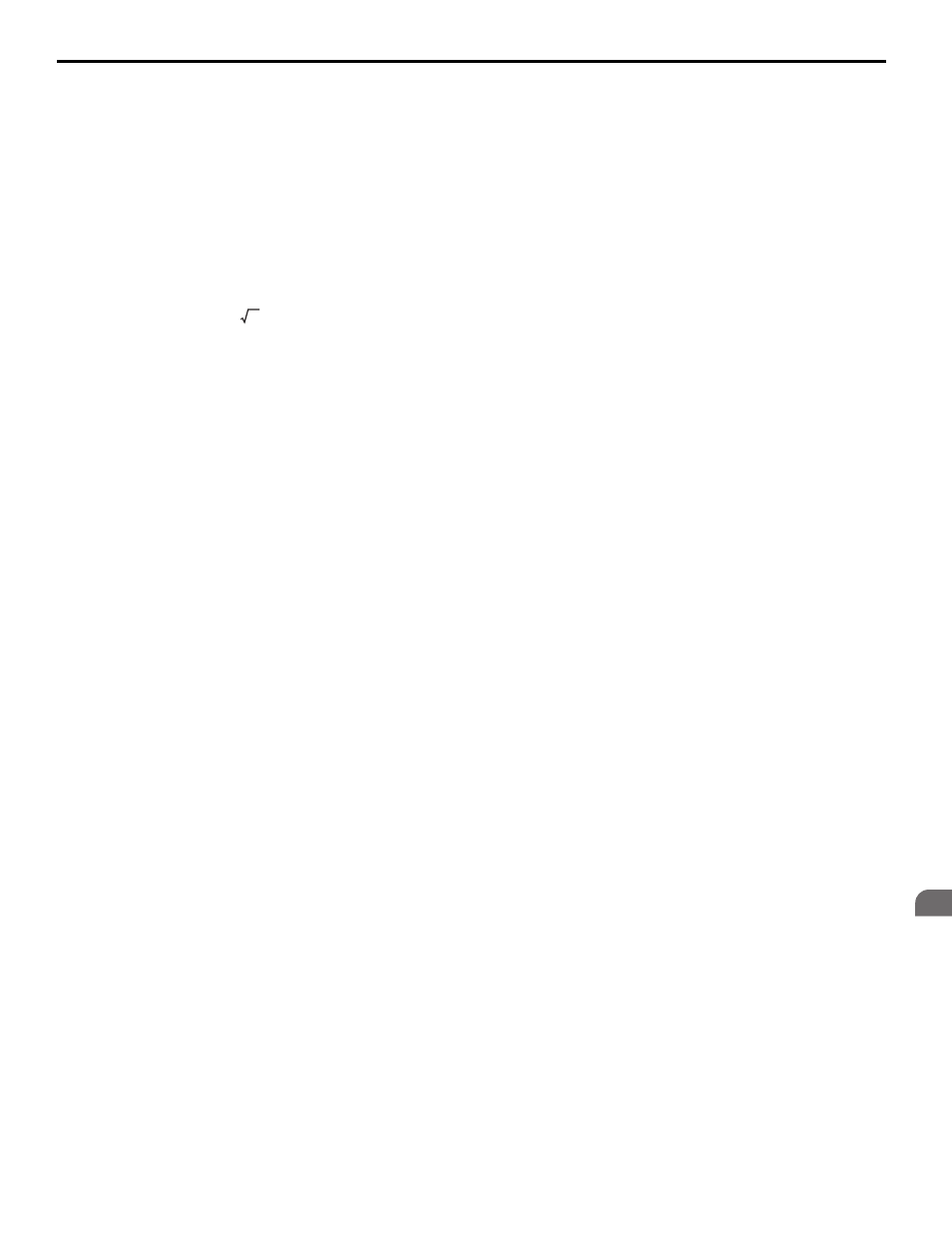Yaskawa L1000E AC Drive CIMR-LEA User Manual
Page 33

3 Electrical Installation
YASKAWA TOEPYAIL1E01A YASKAWA AC Drive L1000E Quick Start Guide
33
El
ec
tr
ical
I
n
st
al
la
ti
o
n
3
■
Wire Gauges and Tightening Torque
Use the tables in this section to select the appropriate wires and crimp terminals.
Gauges listed in the tables are for use in the United States.
Note: 1. Wire gauge recommendations based on drive continuous current ratings using 75°C (167°F) 600 Vac vinyl-sheathed wire assuming
ambient temperature within 40°C (104°F) and wiring distance less than 100 m (328 ft.).
2. Terminals B1, B2, -, +1, +2, and +3, are for connecting a DC link choke, braking resistor or DC power supply. Do not connect other
nonspecific devices to these terminals.
• Consider the amount of voltage drop when selecting wire gauges. Increase the wire gauge when the voltage drop is
greater than 2% of motor rated voltage. Ensure the wire gauge is suitable for the terminal block. Use the following
formula to calculate the amount of voltage drop:
Line drop voltage (V) =
× wire resistance (Ω/km) × wire length (m) × current (A) × 10
-3
• Refer to instruction manual TOBP C720600 0 for braking transistor option or braking resistor option wire gauges.
• Use terminal +1 and the negative terminal when connecting a regenerative converter or a regen unit.
• Use terminal B1 and - when installing the braking unit to the drives with built-in braking transistor (2A0018 to 2A0144,
4A0009 to 4A0075).
•
Refer to UL Standards Compliance on page 219
for information on UL compliance.
Yaskawa recommends using closed-loop crimp terminals on all drive models. UL/cUL approval requires the use of
closed-loop crimp terminals when wiring the drive main circuit terminals on models 2A0106 to 2A0432 and 4A0056 to
4A0260. Use only the tools recommended by the terminal manufacturer for crimping. Refer to
for closed-loop crimp terminal recommendations.
The wire gauges listed in the following tables are Yaskawa recommendations. Refer to local codes for proper wire gauge
selections.
3
